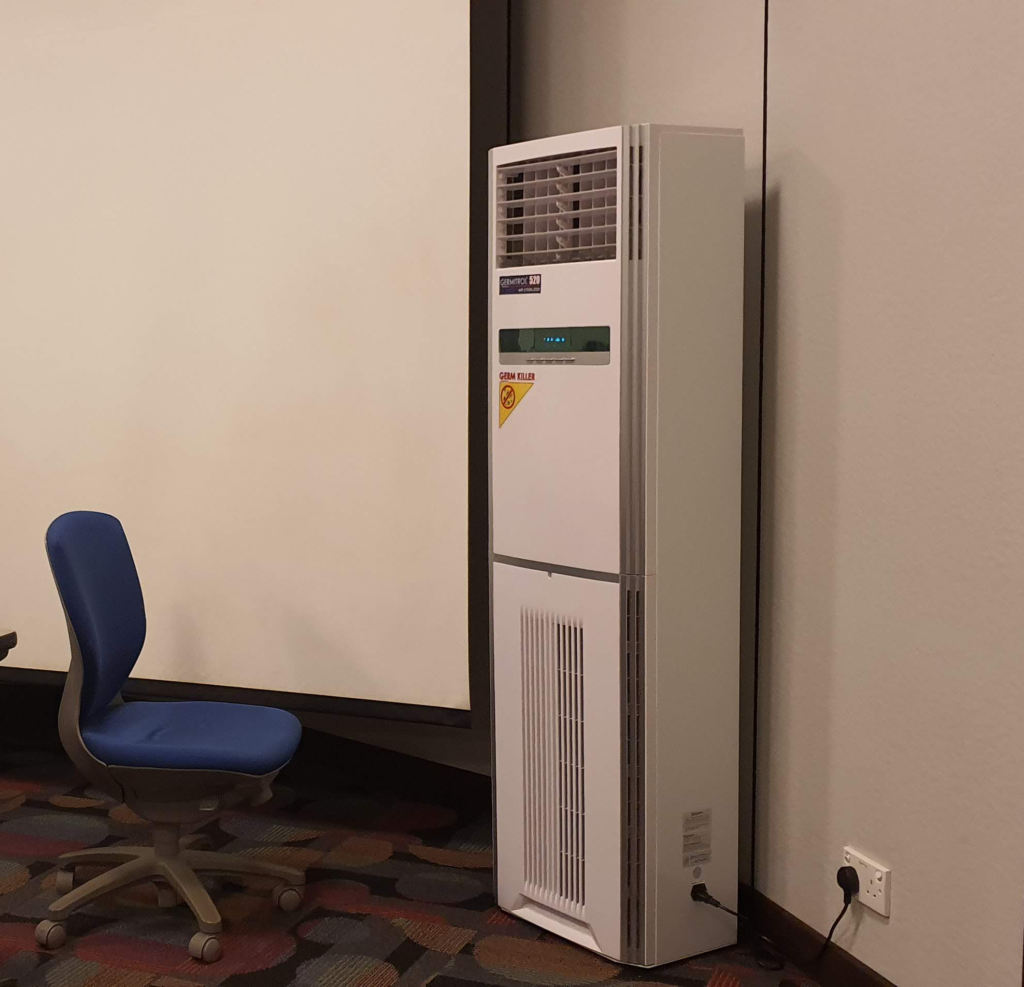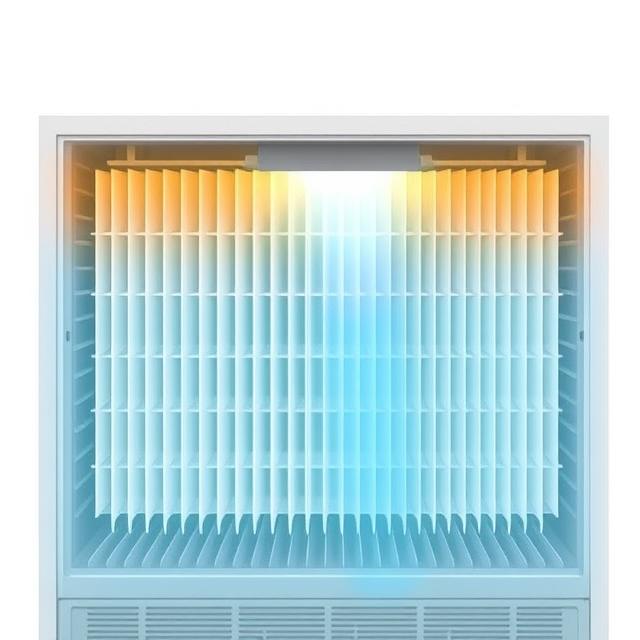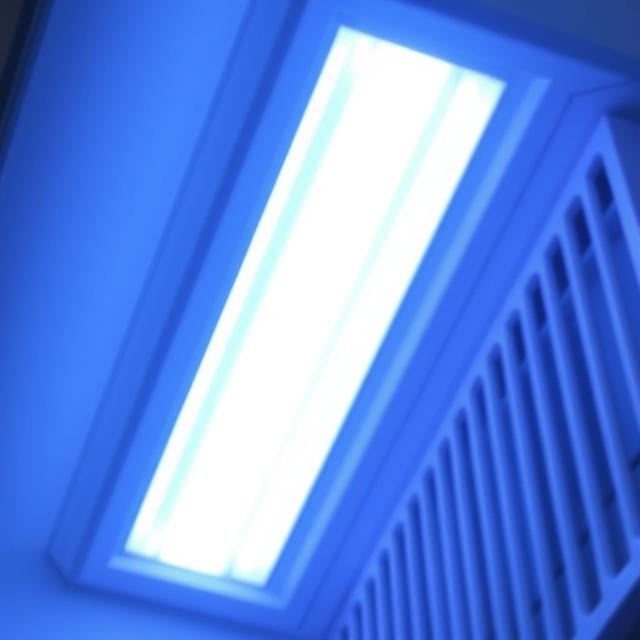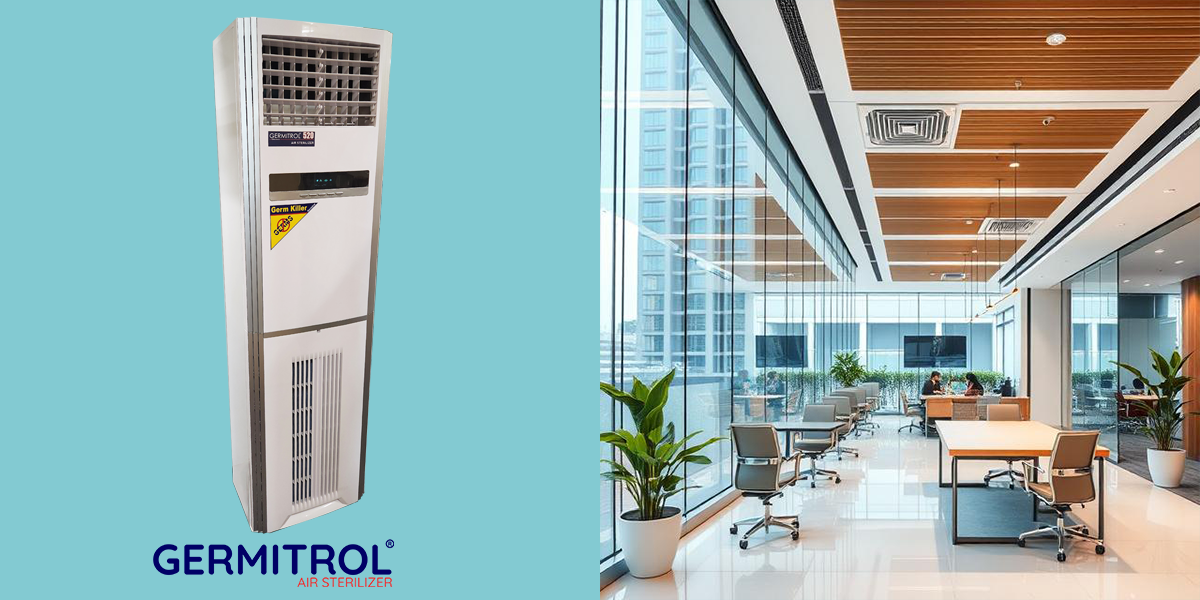Introduction: Why Air Quality Is Now a Facility Manager’s Responsibility
Facility managers in Singapore face more pressure than ever. Beyond managing operations and maintenance, you’re now expected to protect the health of building occupants — especially in offices, clinics, and retail spaces.
Since COVID-19, indoor air quality (IAQ) has become a core safety issue. Tenants and employees want cleaner air, fewer allergens, and reduced odours — all while expecting comfort and efficiency.
So how are proactive facility managers responding? Many are turning to UV air purifiers to reduce airborne contaminants and improve workplace health — without needing HVAC overhauls.

Common Air Complaints Facility Managers Face
You may have heard complaints like:
- “The room always smells musty.”
- “My allergies act up every time I work here.”
- “Too many staff are calling in sick.”
These issues often stem from poor ventilation, high humidity, or airborne pathogens — especially in enclosed, air-conditioned spaces.
Why UV Air Purification Is the Smart Solution
UV air purifiers offer a quick, effective, and low-maintenance solution. Unlike regular filters that trap particles, these purifiers use UV-C light (254nm) to neutralize viruses, bacteria, and mould spores.
Benefits of UV Air Purifiers for Commercial Use:
- ✅ Destroys airborne germs and viruses
- ✅ Removes odours and allergens
- ✅ Works quietly — ideal for offices and clinics
- ✅ Safe for 24/7 use in occupied areas

Real-World Example: Reducing Sick Leave in Raffles Place
A law firm in Raffles Place experienced frequent staff sick days and complaints about stale air. The facility manager deployed two Germitrol UV air purifiers — one in a boardroom and another in a shared work area.
Results After 60 Days:
- Sick leave reduced by over 20%
- Fewer complaints about smells and headaches
- Staff surveys reported better concentration and comfort
- HR and admin teams were impressed by the results and low cost
Where Facility Managers Should Install UV Air Purifiers
To get the most impact, place purifiers in areas with poor ventilation or high usage.
Top 5 Priority Locations:
- Meeting Rooms – Enclosed spaces with long durations
- Toilets – Odours and microbial growth
- Pantries – High VOCs and moisture
- Clinics or Waiting Areas – Pathogen risk from visitors
- Server Rooms – Equipment sensitive to dust and humidity
What to Look For in a Commercial Air Purifier
| Feature | Why It Matters |
|---|---|
| UV-C (254nm) | Kills viruses and bacteria |
| HEPA Filter | Captures PM2.5, pollen, dust |
| Quiet Operation (<65dB) | Prevents disruption in workspaces |
| Ozone-Free | Safe for human health |
| Long Filter Life | Reduces maintenance frequency |
| Large Coverage Area | Matches open-plan or large room needs |

How to Justify the Cost to Management
You may need to present a case to decision-makers.
Sample Breakdown:
- Unit price: $1,399
- Average use: 3–5 years
- Monthly cost (amortized): ~$30–40
- Result: Fewer complaints and sick days = higher productivity
- Added bonus: Better tenant retention and satisfaction
Recommended: Germitrol UV Air Purifiers
At Germitrol, we design UV air purifiers tailored to facility management needs:
- HEPA + UV-C filtration
- Ozone-free and safety-certified
- Compact, quiet, and stylish for any setting
- Currently used in offices, clinics, and schools across Singapore
📞 Want help choosing the right model?
👉 Contact us for a free consultation
👉 Download our Facility Manager Air Quality Checklist
Conclusion: A Simple Fix with a Big Impact
Air quality is no longer optional — it’s essential. UV air purifiers are a proven, easy-to-install solution to reduce sick leave, tenant complaints, and operational headaches.
Make the switch today and protect your building — and your reputation — with cleaner air.
Frequently Asked Questions (FAQ)
Do UV air purifiers really work for commercial buildings?
Yes. UV air purifiers are highly effective in offices, clinics, and enclosed spaces. They destroy viruses, bacteria, and mould spores that standard filters miss.
Are UV air purifiers safe to use around people?
Yes, if they are certified ozone-free (like Germitrol’s). They can run safely while spaces are occupied.
Where should I place air purifiers in my building?
Start with meeting rooms, pantries, toilets, and reception areas — where air is stagnant or complaints are frequent.
What’s the difference between HEPA and UV-C air purifiers?
HEPA traps particles. UV-C kills airborne germs. The best purifiers use both for full protection.
How often do I need to maintain the unit?
HEPA filters typically last 6–12 months, and UV-C bulbs last 9,000–12,000 hours.

